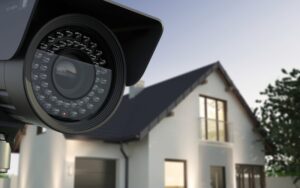 Securing your home and protecting your loved ones is a top priority for any homeowner. With advancements in technology, home security systems have become increasingly sophisticated, offering a range of features to enhance safety and peace of mind. However, with so many options available, selecting the right home security system can be daunting. In this blog post, we’ll explore the essential factors to consider when choosing a quality home security system to ensure optimal protection for your property and loved ones.
Securing your home and protecting your loved ones is a top priority for any homeowner. With advancements in technology, home security systems have become increasingly sophisticated, offering a range of features to enhance safety and peace of mind. However, with so many options available, selecting the right home security system can be daunting. In this blog post, we’ll explore the essential factors to consider when choosing a quality home security system to ensure optimal protection for your property and loved ones.
- Assess Your Security Needs:
- Start by assessing your home’s unique security needs. Consider factors such as the size of your property, the layout of your home, and any specific security vulnerabilities or concerns.
- Identify areas of your home that require surveillance, such as entry points, windows, and outdoor spaces, to determine the type and number of security devices needed.
- Determine Your Budget:
- Set a realistic budget for your home security system based on your financial resources and priorities.
- Consider the cost of equipment, installation fees, monthly monitoring fees (if applicable), and any additional features or services you may require.
- Choose the Right Type of System:
- There are several types of home security systems available, including:
- Monitored systems: These systems are connected to a monitoring center that notifies authorities in the event of an emergency.
- Unmonitored systems: These systems trigger alarms but do not notify authorities. Instead, they rely on neighbors or passersby to respond to alerts.
- DIY systems: These systems are self-installed and self-monitored, offering flexibility and cost savings.
- Professionally installed systems: These systems are installed by trained technicians and typically come with professional monitoring services.
- There are several types of home security systems available, including:
- Consider Essential Features:
- Look for essential features that enhance the effectiveness and reliability of your home security system, such as:
- Video surveillance: High-definition cameras with night vision and motion detection capabilities provide visual verification and deterrence.
- Alarm systems: Audible alarms and sirens alert you to unauthorized entry or suspicious activity.
- Door and window sensors: These sensors detect when doors or windows are opened, triggering alarms and notifications.
- Smart home integration: Compatibility with smart home platforms allows you to control and monitor your security system remotely via smartphone apps.
- Environmental monitoring: Sensors for smoke, carbon monoxide, and water leaks provide early warnings of potential hazards.
- Look for essential features that enhance the effectiveness and reliability of your home security system, such as:
- Evaluate Quality and Reliability:
- Research reputable home security companies with a proven track record of reliability, customer satisfaction, and responsive customer support.
- Read customer reviews, testimonials, and ratings from independent organizations to gauge the quality and performance of different security systems.
- Consider factors such as equipment warranties, service contracts, and the availability of technical support to ensure you’re investing in a reliable and trustworthy security solution.
Conclusion: Choosing a quality home security system is essential for safeguarding your home, valuables, and loved ones against potential threats and intrusions. By assessing your security needs, setting a budget, choosing the right type of system, considering essential features, evaluating quality and reliability, and customizing your system to meet your specific requirements, you can select the perfect home security solution for your peace of mind. Invest in a comprehensive and reliable home security system that provides round-the-clock protection and enhances the safety and security of your home.

